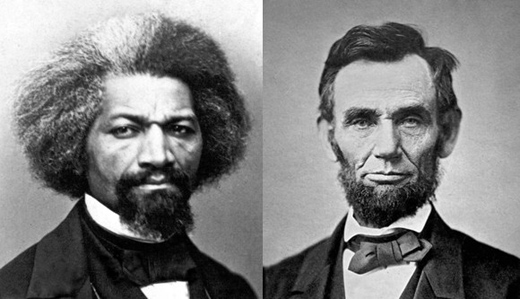Branding February: why Black History Month?
February 12, 2020 African American / Black History / black innovations / Black inventors / Black People / branding / branding February / Business / Carter G Woodson / Community / February / History / United States of America
February is a festive month counting Valentine’s Day and the federal holiday of President’s Day as well as Abraham Lincoln’s birthday on February 12. February also accounts for the Super Bowl which has been held during the first week of February since 2003 as every Super Bowl from 1967-2003, all but one, took place in January with the one being held in February due to September 11, 2001 attacks. Since 2003 Super Bowl has been integrated in the month of February along with observations, events, and other marking dates. The most remarkable one, which is celebrated every day for 28 or 29 days, is having the month of February branded as Black History Month. It is a month dedicated to showcase African American and African Diaspora contribution to America and to the world. It is a month to remember African American excellence and revive forgotten history of African Americans’ impact in the economical, political, cultural and social fabric of America.
Why Black History month?
The celebration of Black History Month begins in 1915, half a century after the 13th Amendment that abolished slavery in the United States of America. Negro History Week which is the precursor to Black History Month was created in 1926 in the United States, when historian Carter G. Woodson and the Association for the Study of Negro Life and History announced the second week of February to be “Negro History Week”. Mr. Woodson, a University of Chicago and Harvard graduate, along with other black intellectuals hoped that others would popularize the findings published in the Journal of Negro History in 1916. When he understood that the responsibility was up to him and the very few, the “Negro History week” commenced with a weeklong programming that was launched with a press release in 1926.
The Inspiration for selecting the month of February
 Woodson chose February for reasons of tradition and reform. It is commonly said that Woodson selected February to encompass the birthdays of two great Americans who played a prominent role in shaping black history, namely Abraham Lincoln and Frederick Douglass, whose birthdays are the 12th and the 14th, respectively. More importantly, he chose them for reasons of tradition.
Woodson chose February for reasons of tradition and reform. It is commonly said that Woodson selected February to encompass the birthdays of two great Americans who played a prominent role in shaping black history, namely Abraham Lincoln and Frederick Douglass, whose birthdays are the 12th and the 14th, respectively. More importantly, he chose them for reasons of tradition.
Prof. Stauffer, author of ‘Giants: The Parallel Lives of Frederick Douglass and Abraham Lincoln’, stated “The main reason that they bonded is because they both recognized in each other great self-made men. Douglass rose up from a slave to become one of the most famous black men in the world. Lincoln rises up from nothing. (…). He’s born in a log cabin. It was actually a three-sided hut, you know, it was very crude. Lincoln has less than a year of formal schooling and rises up to become president. And the main reason they were able to rise up is because of their love of language, their capacity to learn how to use words as weapons. And long before they ever met, they read, virtually memorized the same six books or authors, and that was central to their self-making.”
To memorialize these two men, Mr. Woodson with the Association for the Study of African American Life and History (ASALH) chose the second week of February to coincide with the birthdays of Abraham Lincoln and Frederick Douglass, and sponsored a national Negro History week in 1926 to celebrate Black people contribution to America. By the late 1960s, after numerous Mayors’ proclamation for Negro History Week, it evolved into Black History Month across the country.
Branding February as Black History Month
The brainchild of notable Mr. Woodson gradually grew to be Black History Month as President Gerald Ford officially recognized Black History Month in 1976, calling upon the public to “seize the opportunity to honor the too-often neglected accomplishments of black Americans in every area of endeavor throughout our history”. Since the official recognition, every American president has designated February as Black History Month and endorsed a specific theme every year throughout the years symbolizing the upliftment of Black people, embodiment of America’s growth and exemplifying America’s position in the world. Black History month, year after year had themes such as, in 1928 “Civilization: A World Achievement”, 1935 “The Negro Achievements in Africa”, 1944 “The Negro and the New Order”, 1969 “Changing the Afro American Image through History”, 1986 “Afro American Experience: International Connection”, 1998 “Black Business”, 2008 “Carter G. Woodson and the Origins of Multiculturalism”, 2011 “African Americans and the Civil War”, and in 2020, we celebrated under the theme “African Americans and the Vote”. In 2021 it is planned to be under the theme of “The Black Family: Representation, Identity, and Diversity” that the month of February will be celebrated. To learn about past themes, please see the ASALH.
Therefore Black History Month, or National African American History Month, is a month long celebration of achievements by Black Americans and the central role played by African Americans in U.S. history, which has now extended to Canada as well. However, in countries such as Ireland, the Netherlands, and the United Kingdom it is observed in October.
« Branding Time: Cultural Construct
